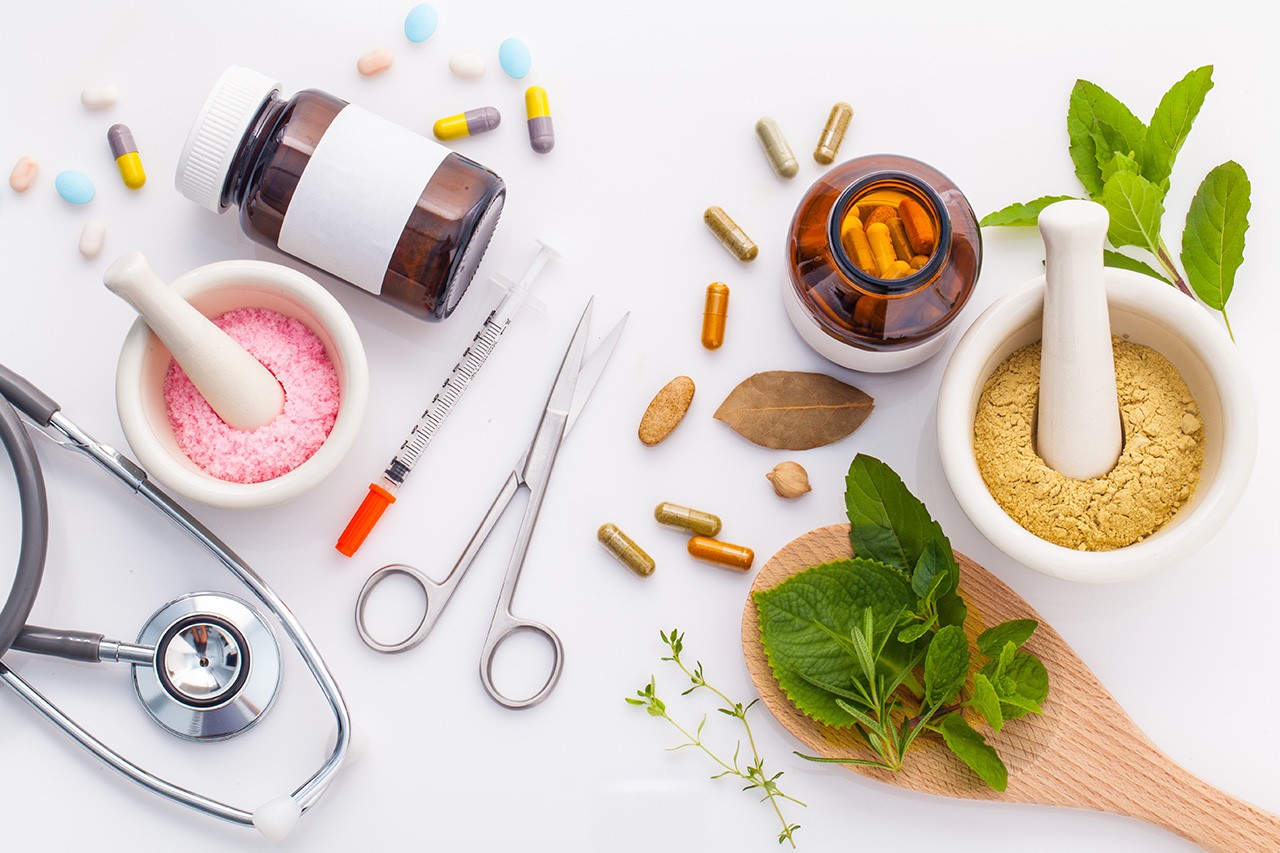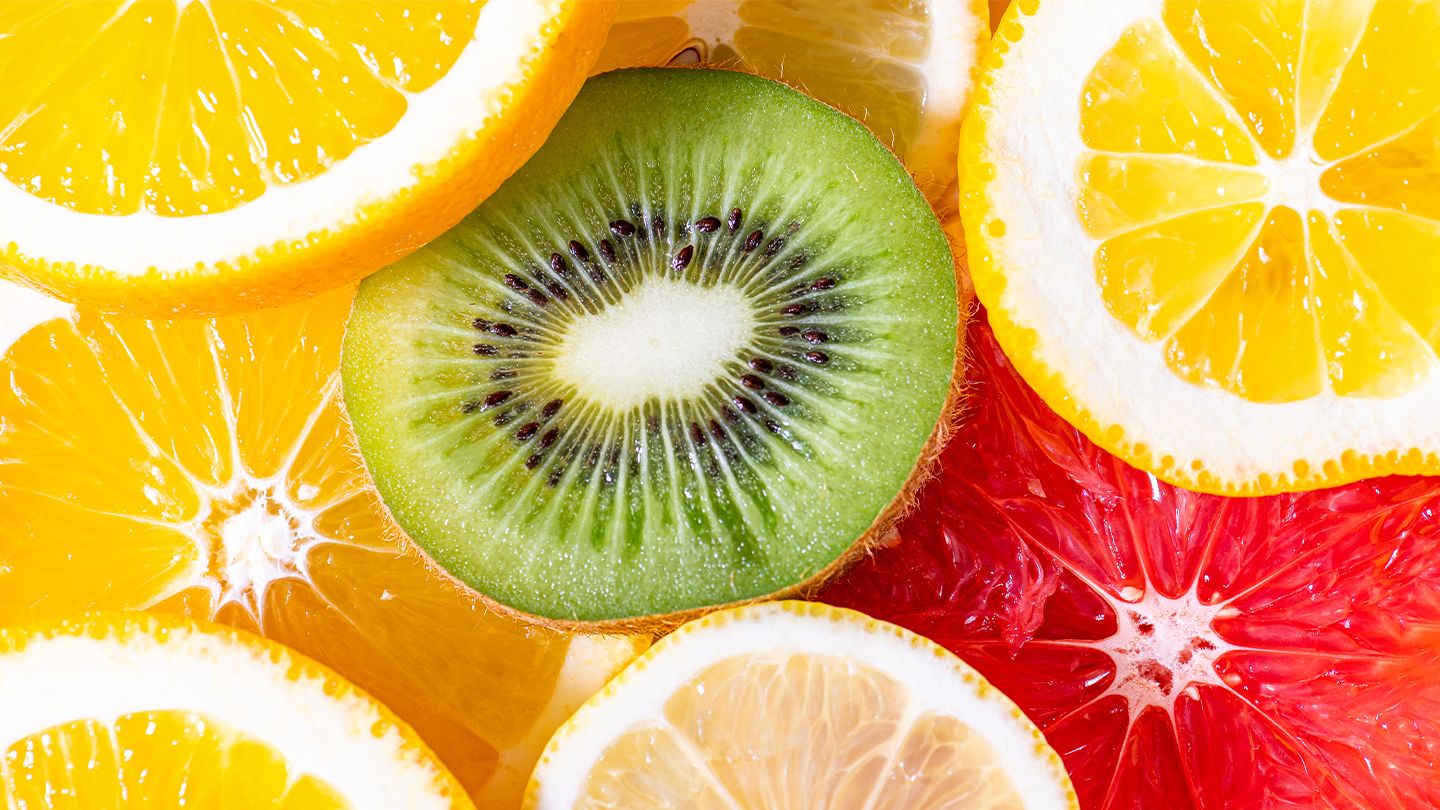health
Top 7 Tips to Prevent the Stomach Bug

Are you tired of being hit with the stomach bug just when you thought your immune system was impenetrable? Well, we’ve got some good news for you: there are several easy and effective ways to prevent this pesky illness from ruining your day. Whether it’s washing your hands more frequently or paying closer attention to what you eat, our top 7 tips will arm you with the knowledge and strategies needed to keep those stomach bugs at bay. So sit tight and get ready to learn how to stay healthy and strong all year round!
Wash your hands regularly
One of the best ways to prevent the stomach bug is by washing your hands regularly. Make sure to wash your hands thoroughly with soap and water, and avoid touching your face, especially your mouth, nose, and eyes.
Avoid sharing food and utensils
One of the best ways to prevent the stomach bug is to avoid sharing food and utensils with others. This includes not sharing drinks, plates, or silverware. If you must share these things, be sure to wash them thoroughly first.
Additionally, it’s important to avoid eating food that has been contaminated by someone else. This means avoiding food that has been touched by someone who is sick, as well as food that has been left out in the open. If you’re not sure whether or not something is safe to eat, err on the side of caution and don’t eat it.
Cook food thoroughly
1. Cook food thoroughly: cook all meat and poultry until it is well done, and avoid undercooked hamburgers. Cook eggs until the yolks and whites are firm. Use a food thermometer to be sure foods have reached a safe internal temperature.
Disinfect surfaces
One of the best ways to prevent the stomach bug is to disinfect surfaces. This includes all surfaces in your home, especially countertops, door handles, and light switches. You should also disinfect any surface that may have come into contact with vomit or feces. This includes toilets, sinks, and floors.
Stay hydrated
When it comes to preventing the stomach bug, one of the most important things you can do is to stay hydrated. Drink plenty of fluids, especially water, throughout the day to keep your body hydrated and flush out any harmful bacteria that may be trying to take hold. If you start to feel even slightly dehydrated, drink more fluids immediately.
Get plenty of rest
When your body is run down, it’s more susceptible to infection. That’s why it’s important to get plenty of rest when you can. If you’re not well-rested, your body won’t be able to fight off the stomach bug as effectively. So make sure to get at least 7-8 hours of sleep every night and take naps during the day if possible.
Conclusion
Stomach bugs are an unfortunately common occurrence, but that doesn’t mean you can’t take steps to protect yourself and your family. By following the top 7 tips in this article, you’ll be able to reduce your risk of catching a stomach bug. From washing hands frequently and avoiding cross-contamination to staying hydrated and regularly cleaning surfaces, these simple tips are easy to implement every day. With a little bit of effort, you can help protect yourself from getting sick with a stomach bug.
health
Key Health and Nutrition Trends 2024

The year 2024 is shaping up to be a pivotal year in the realm of health and nutrition. The world is witnessing a transformative shift in the food and beverage industry, driven by innovation in research, technology, and product development. This is the focus of our sixth annual edition of the Key Health and Nutrition Trends (KHNI) report. The report explores the developments that are propelling the global food system forward, and the implications for our health and nutrition.
The United Nations’ Sustainable Development Goals (SDGs) have provided a framework for these developments. The 17 goals, adopted by all United Nations Member States in 2015, provide a blueprint for peace and prosperity for people and the planet, now and into the future. The second goal, “Zero Hunger,” aims to end hunger, achieve food security and improved nutrition, and promote sustainable agriculture. This goal is particularly relevant to the food and beverage industry, which plays a critical role in the global food system.
Sustainable Nutrition
Sustainable nutrition is an emerging concept that bridges the gap between our nutritional needs and the sustainability of our food systems. It recognizes the interconnectedness of our health and the health of our planet. The concept is rooted in the understanding that our food choices not only affect our health but also the health of our planet.
The global food system is currently under immense pressure due to increasing population and changing dietary habits. The current food production methods are not sustainable and contribute significantly to global greenhouse gas emissions. Sustainable nutrition aims to address these challenges by promoting a diet that is not only healthy but also sustainable. It encourages the consumption of plant-based foods, locally sourced produce, and minimal waste.
Innovation in Research and Technology
Innovation in research and technology is playing a key role in shaping the future of health and nutrition. New technologies such as gene editing, vertical farming, and lab-grown meat are revolutionizing the way we produce and consume food. These technologies have the potential to increase food production, reduce environmental impact, and improve the nutritional quality of our food.
At the same time, advances in nutritional research are providing us with a deeper understanding of the relationship between diet and health. We are learning that nutrition is not a one-size-fits-all concept. Personalized nutrition, based on individual genetic makeup, lifestyle, and gut microbiome, is becoming a reality.

Picture by: https://www.everydayhealth.com/diet-nutrition/vitamin-c/
Global Food Production
Global food production is at the heart of the global food system. It is not only about producing enough food to feed the world’s population but also about producing food that is nutritious and sustainable. The challenge is to increase food production without depleting our natural resources and contributing to climate change.
The food and beverage industry plays a crucial role in this regard. By adopting sustainable practices, investing in innovative technologies, and developing nutritious products, the industry can contribute significantly to the global food system’s sustainability and resilience.
Health and Nutrition Trends
Health and nutrition trends are shaping the food and beverage industry. Consumers are becoming more health-conscious and are demanding products that are not only tasty but also nutritious and sustainable. This is driving innovation in product development.
Plant-based diets, functional foods, probiotics, and personalized nutrition are some of the trends that are likely to dominate in 2024. These trends reflect a growing awareness of the role of diet in health and wellbeing, and a desire for more sustainable food choices.
Global Greenhouse Gas Emissions
The global food system is a significant contributor to global greenhouse gas emissions. Agriculture, deforestation, and food waste are among the main contributors. Reducing these emissions is critical for mitigating climate change.
The food and beverage industry can play a significant role in this regard by adopting sustainable practices, reducing food waste, and promoting sustainable diets.
Nutrition and Health
Nutrition and health are intrinsically linked. A balanced, nutritious diet is essential for good health and wellbeing. At the same time, poor nutrition can lead to a range of health problems, including obesity, diabetes, and heart disease.
Innovation in research and technology is revolutionizing the way we approach nutrition and health, offering a plethora of new tools and insights that can significantly enhance our well-being. As we delve deeper into the complexities of human biology and dietary needs, we are beginning to understand that nutrition is not a one-size-fits-all solution. This realization has paved the way for the development of personalized nutrition, which tailors dietary recommendations based on an individual’s unique genetic makeup, lifestyle, and health conditions.
Personalized nutrition leverages advanced technologies such as genetic testing, microbiome analysis, and wearable health devices to provide insights that were previously unattainable. For instance, by analyzing a person’s DNA, researchers can identify specific nutrient deficiencies or sensitivities, allowing for customized dietary plans that optimize health outcomes. Additionally, the use of mobile applications and digital platforms enables individuals to track their food intake and health metrics in real-time, fostering a more proactive approach to nutrition management.
Moreover, the rise of functional foods—products that offer health benefits beyond basic nutrition—has further transformed the landscape of dietary choices. These foods are fortified with vitamins, minerals, probiotics, and other bioactive compounds that can support various aspects of health, such as immune function, gut health, and cognitive performance. As research continues to uncover the health benefits of these functional ingredients, consumers are becoming more informed and selective about their food choices, leading to a growing demand for products that promote overall wellness.
The future of nutrition and health looks particularly promising as interdisciplinary collaboration between nutritionists, technologists, and healthcare professionals continues to flourish. This synergy is driving innovation in food production, such as the development of plant-based alternatives and lab-grown meats, which not only cater to health-conscious consumers but also address environmental sustainability concerns.
Furthermore, advancements in artificial intelligence and machine learning are enabling researchers to analyze vast amounts of data, uncovering patterns and correlations that can inform public health policies and dietary guidelines. This data-driven approach holds the potential to revolutionize how we understand the relationship between diet and health, leading to more effective interventions and strategies for disease prevention.
The integration of innovation in research and technology into the field of nutrition and health is creating a dynamic and evolving landscape. With personalized nutrition and functional foods at the forefront, we are on the cusp of a new era where individuals can take charge of their health through informed dietary choices, ultimately leading to improved health outcomes and a better quality of life. As we continue to explore and harness these advancements, the possibilities for enhancing our nutrition and health are boundless.
In conclusion, the year 2024 promises to be an exciting time for health and nutrition. The developments in research, technology, product development, and consumer trends are set to reshape the global food system and our approach to health and nutrition. As we move forward, the focus should be on sustainable nutrition, reducing global greenhouse gas emissions, and promoting health and wellbeing through diet.
health
The Impact of AI on Healthcare: Innovations and Challenges

Artificial Intelligence (AI) is revolutionizing various industries, and healthcare is no exception. The integration of AI in healthcare has led to groundbreaking innovations that promise to enhance patient care, streamline operations, and improve outcomes. However, the adoption of AI also presents several challenges that need to be addressed. This article delves into the impact of AI on healthcare, highlighting key innovations and the associated challenges.
AI Healthcare Innovations
1. Diagnostic Accuracy and Speed
One of the most significant contributions of AI in healthcare is its ability to improve diagnostic accuracy and speed. AI algorithms, particularly those based on machine learning (ML) and deep learning, can analyze medical images such as X-rays, MRIs, and CT scans with remarkable precision. For instance, AI systems have been developed to detect conditions like cancer, heart disease, and neurological disorders at early stages, often with higher accuracy than human doctors.
2. Personalized Treatment Plans
AI is also paving the way for personalized medicine. By analyzing a patient’s genetic information, medical history, and lifestyle factors, AI can help doctors develop individualized treatment plans. This approach ensures that patients receive the most effective therapies tailored to their unique needs, thereby improving treatment outcomes and reducing adverse effects.
3. Predictive Analytics
Predictive analytics is another area where AI is making a substantial impact. By analyzing vast amounts of data from electronic health records (EHRs), wearable devices, and other sources, AI can predict disease outbreaks, patient readmissions, and even individual health risks. This predictive capability allows healthcare providers to take proactive measures, improving patient care and reducing healthcare costs.
4. Robotic Surgery
Robotic surgery, powered by AI, is transforming surgical procedures. AI-driven robots can perform complex surgeries with high precision, reducing the risk of human error. These robots can also assist surgeons by providing real-time data and insights during operations, enhancing surgical outcomes and patient safety.
5. Virtual Health Assistants
AI-powered virtual health assistants are becoming increasingly popular. These digital tools can provide patients with 24/7 access to medical information, answer health-related questions, and even remind patients to take their medications. Virtual health assistants improve patient engagement and adherence to treatment plans, ultimately leading to better health outcomes.
6. Drug Discovery and Development
AI is accelerating the drug discovery and development process. Traditional methods of developing new drugs are time-consuming and costly. AI can analyze vast datasets to identify potential drug candidates, predict their efficacy, and even simulate clinical trials. This not only speeds up the development process but also reduces costs, bringing new treatments to market faster.
7. Administrative Efficiency
AI is also enhancing administrative efficiency in healthcare. AI-powered systems can automate routine tasks such as appointment scheduling, billing, and claims processing. This reduces the administrative burden on healthcare staff, allowing them to focus more on patient care. Additionally, AI can help in managing and analyzing large volumes of healthcare data, providing valuable insights for decision-making.

Picture by: Yandex.com
Challenges of AI in Healthcare
1. Data Privacy and Security
One of the primary challenges of AI in healthcare is ensuring data privacy and security. Healthcare data is highly sensitive, and any breach can have severe consequences. AI systems require access to vast amounts of data to function effectively, raising concerns about data protection. Ensuring compliance with regulations such as the Health Insurance Portability and Accountability Act (HIPAA) and implementing robust cybersecurity measures are essential to address this challenge.
2. Bias and Fairness
AI algorithms are only as good as the data they are trained on. If the training data is biased, the AI system can produce biased results, leading to disparities in healthcare. For example, if an AI system is trained primarily on data from a specific demographic, it may not perform well for patients from other demographics. Ensuring diversity in training data and regularly auditing AI systems for bias are crucial steps to mitigate this issue.
3. Regulatory and Ethical Concerns
The rapid advancement of AI in healthcare has outpaced regulatory frameworks. There is a need for clear guidelines on the development, deployment, and use of AI in healthcare. Additionally, ethical concerns such as patient consent, transparency, and accountability must be addressed. Developing comprehensive regulatory and ethical frameworks is essential to ensure the responsible use of AI in healthcare.
4. Integration with Existing Systems
Integrating AI systems with existing healthcare infrastructure can be challenging. Many healthcare providers still rely on legacy systems that may not be compatible with modern AI technologies. Ensuring seamless integration requires significant investment in upgrading infrastructure and training staff to use new technologies effectively.
5. Cost and Accessibility
While AI has the potential to reduce healthcare costs in the long run, the initial investment in AI technologies can be substantial. Small and rural healthcare providers may find it challenging to afford these technologies, leading to disparities in access to AI-driven healthcare. Developing cost-effective AI solutions and ensuring equitable access to these technologies is crucial to address this challenge.
6. Trust and Acceptance
Trust and acceptance of AI in healthcare are vital for its successful adoption. Patients and healthcare providers may be skeptical about relying on AI for critical medical decisions. Building trust requires demonstrating the reliability, accuracy, and safety of AI systems through rigorous testing, validation, and transparent communication.
Conclusion
The impact of AI on healthcare is profound, with numerous innovations that have the potential to transform patient care, improve outcomes, and enhance operational efficiency. From diagnostic accuracy and personalized treatment plans to predictive analytics and robotic surgery, AI is ushering in a new era of healthcare.
However, the adoption of AI in healthcare also presents several challenges, including data privacy and security, bias and fairness, regulatory and ethical concerns, integration with existing systems, cost and accessibility, and trust and acceptance. Addressing these challenges requires a collaborative effort from healthcare providers, policymakers, technology developers, and other stakeholders.
As we continue to navigate the complexities of AI in healthcare, it is essential to strike a balance between leveraging its potential benefits and addressing the associated challenges. By doing so, we can harness the power of AI to create a more efficient, effective, and equitable healthcare system for all.
health
Embrace the Future of Healthcare with Telehealth Services

Telehealth Services: The Future of Quality Medical Care
Understanding Telehealth and Its Impact
Telehealth represents a transformative shift in the landscape of healthcare delivery, fundamentally altering how patients access medical services and interact with healthcare providers. By leveraging advanced digital technology, telehealth facilitates a wide range of health services, including patient education, consultations, diagnosis, and ongoing medical care, all from the comfort of one’s home or any location with internet access.
At its core, telehealth encompasses various modalities, such as video conferencing, mobile health applications, remote patient monitoring, and secure messaging platforms. This means that patients can engage in virtual appointments with their healthcare providers through video calls, allowing for real-time interaction that closely resembles an in-person visit. For individuals living in rural or underserved areas, where access to healthcare facilities may be limited, telehealth serves as a vital link to essential medical services.
Moreover, telehealth is not just about convenience; it also enhances the quality of care. Patients can receive timely medical advice and interventions without the need to travel long distances, which can be particularly beneficial for those with mobility issues or chronic conditions that require regular monitoring. For instance, a patient managing diabetes can use telehealth to consult with their endocrinologist, receive guidance on medication adjustments, and discuss dietary changes, all while avoiding the stress and time commitment of a traditional office visit.
In addition to direct medical consultations, telehealth plays a crucial role in patient education. Healthcare providers can utilize digital platforms to share educational resources, instructional videos, and personalized health plans, empowering patients to take an active role in managing their health. This educational component is essential for promoting preventive care and encouraging healthy lifestyle choices, ultimately leading to better health outcomes.
Furthermore, telehealth has gained significant traction in response to global health challenges, such as the COVID-19 pandemic, which necessitated the need for safe and effective ways to deliver healthcare while minimizing the risk of virus transmission. As a result, many healthcare systems rapidly adopted telehealth solutions, leading to a surge in virtual visits and a broader acceptance of remote care among both patients and providers.
In summary, telehealth is revolutionizing the way healthcare is delivered by making it more accessible, efficient, and patient-centered. It allows individuals to connect with healthcare professionals without the barriers of distance or time, ensuring that quality medical care is available to everyone, regardless of their location. As technology continues to evolve, the potential for telehealth to further enhance healthcare delivery and improve patient outcomes is immense, making it a true game-changer in the field of medicine. Lots of doctors and health professionals think telehealth is really important, and it can even help patients get better faster.

Image by : Yandex
The Benefits of Telehealth
Telehealth is pretty cool. It can help healthcare organizations meet their goals almost 30% better. It can also help patients avoid unnecessary visits to the hospital or urgent care. One company, Teledoc, even found that their telehealth services helped patients feel less depressed, anxious, and stressed. Telehealth can also be more accurate in some cases, like diagnosing diseases from a distance.
The Many Uses of Telehealth
Telehealth can be used in lots of different ways. It can help people in many areas of healthcare, like psychiatry, neurology, radiology, and pediatrics. It can be used in different places too, like hospitals, prisons, and schools. It can even help track your health habits and manage chronic conditions. Telehealth can also be used to improve patient care quality, reduce wait times in emergency rooms, and provide education for new mothers.
The Bright Future of Telehealth Care
The Growing Popularity of Telehealth
Telehealth is becoming more and more popular. By 2022, the virtual healthcare market could be worth millions of dollars. The government is also working to make telehealth more accessible. This could mean more virtual doctor visits and less time waiting for appointments.
The Challenges and Opportunities of Telehealth
Of course, there are still some challenges to be faced. These include issues with payment, resistance to change, and proving the value of telehealth. However, many healthcare organizations are ready to invest in telehealth because they believe it’s the future. Telehealth is creating new opportunities for healthcare professionals and patients. It’s breaking down barriers and making healthcare more accessible for everyone.
Embracing the Future of Telemedicine
With the rise of telehealth, the landscape of healthcare is undergoing a significant transformation for the better. This innovative approach to medical care leverages technology to connect patients with healthcare providers remotely, breaking down geographical barriers and making quality medical services more accessible to a broader population. As we navigate the various challenges associated with this shift, such as ensuring data security, maintaining patient-provider relationships, and addressing disparities in technology access, we can remain optimistic about the future of healthcare.
Telehealth offers numerous advantages that contribute to a more efficient healthcare system. For instance, patients can receive timely consultations without the need to travel long distances, which is particularly beneficial for those living in rural or underserved areas. This convenience not only saves time and money for patients but also reduces the burden on healthcare facilities, allowing them to allocate resources more effectively.
Moreover, telehealth facilitates continuous monitoring and management of chronic conditions through remote patient monitoring tools. These technologies enable healthcare providers to track patients’ health metrics in real-time, leading to more personalized care and timely interventions. As a result, patients can experience improved health outcomes and a better quality of life.
In addition to enhancing accessibility and efficiency, telehealth also promotes a more patient-centered approach to healthcare. Patients can engage in their care more actively, as they have the flexibility to schedule appointments at their convenience and access a wealth of information online. This empowerment fosters a collaborative relationship between patients and providers, ultimately leading to better adherence to treatment plans and improved health literacy.
As we look ahead, it is clear that telehealth is not just a temporary solution but a fundamental component of the future of healthcare. The ongoing advancements in technology, such as artificial intelligence and machine learning, will further enhance telehealth services, making them even more effective and user-friendly. With continued investment in infrastructure and training, we can expect a future where quality medical care is not only more accessible but also more efficient than ever before.
In conclusion, the rise of telehealth signifies a pivotal moment in the evolution of healthcare. By embracing this innovative approach, we can work towards overcoming existing challenges and create a healthcare system that prioritizes accessibility, efficiency, and patient-centered care. The future of healthcare is bright, and telehealth is at the forefront of this exciting transformation.
-
Business1 year ago
Cybersecurity Consulting Company SequelNet Provides Critical IT Support Services to Medical Billing Firm, Medical Optimum
-
Business1 year ago
Team Communication Software Transforms Operations at Finance Innovate
-
Business1 year ago
Project Management Tool Transforms Long Island Business
-
Business1 year ago
How Alleviate Poverty Utilized IPPBX’s All-in-One Solution to Transform Lives in New York City
-
health1 year ago
Breast Cancer: The Imperative Role of Mammograms in Screening and Early Detection
-
Sports1 year ago
Unstoppable Collaboration: D.C.’s Citi Open and Silicon Valley Classic Unite to Propel Women’s Tennis to New Heights
-
Art /Entertainment2 years ago
Embracing Renewal: Sizdabedar Celebrations Unite Iranians in New York’s Eisenhower Park
-
Finance2 years ago
The Benefits of Starting a Side Hustle for Financial Freedom





























